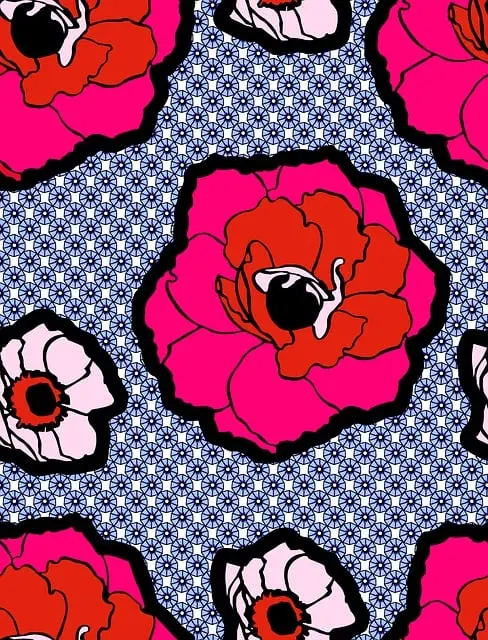Kratom for depression is increasingly being explored as a natural complement to traditional mental health care, particularly for individuals dealing with depressive symptoms. This plant-based compound, derived from Mitragyna speciosa, contains alkaloids like mitragynine and 7-hydroxymitragynine that have been associated with mood regulation. A holistic approach to depression management includes integrating kratom into a balanced self-care routine, alongside practices such as mindfulness meditation, regular physical activity, and a nutritious diet. It's crucial to consult healthcare providers before incorporating kratom due to potential drug interactions and side effects. The combination of kratom with professional mental health support like therapy or support groups can create a comprehensive strategy for managing depression. Tailoring self-care to individual needs, including the establishment of a personal sanctuary for relaxation and introspection, enhances the effectiveness of kratom for depression. This sanctuary should be a tranquil space with sensory elements that promote calm, and when paired with mindful exercises, strategic dietary choices, and therapeutic activities, can lead to improved mental health outcomes. The role of kratom in this context is to potentially alleviate depressive symptoms by modulating mood and fostering a sense of well-being, complementing other self-care practices for a holistic approach to managing depression.
navaling the complexities of modern life, establishing self-care routines has become increasingly vital for maintaining mental wellbeing. This article delves into the integration of Kratom—a natural supplement—within these routines, particularly for those grappling with depression. We explore how crafting a personal sanctuary through daily practices, including the strategic use of Kratom for depression, can effectively manage depressive symptoms. Additionally, we examine the synergistic benefits of pairing Kratom with mindful exercises, dietary choices, and therapeutic activities, enhancing overall mental health. Join us as we journey through the holistic approach to self-care, where each element plays a role in creating a balanced and nurturing lifestyle.
- Embracing Holistic Wellness: Integrating Kratom into Effective Self-Care Routines for Depression
- Crafting Your Personal Sanctuary: Daily Practices and the Role of Kratom in Managing Depressive Symptoms
- Mindful Complements to Kratom: Exercises, Dietary Choices, and Therapeutic Activities for Enhanced Mental Health
Embracing Holistic Wellness: Integrating Kratom into Effective Self-Care Routines for Depression

Embarking on a journey towards holistic wellness, particularly when addressing depression, can be a multifaceted endeavor that encompasses various practices and remedies. Kratom, a plant-based compound derived from the leaves of Mitragyna speciosa, has garnered attention for its potential therapeutic effects. When considering kratom for depression, it’s crucial to approach its integration into self-care routines with both awareness and caution. Kratom’s alkaloids, mitragynine and 7-hydroxymitragynine, are believed to influence brain receptors that regulate mood, which can be beneficial for individuals experiencing depressive symptoms.
Incorporating kratom into an effective self-care routine requires a balanced perspective, combining it with other wellness activities such as mindfulness meditation, regular exercise, and a nutritious diet. It’s important to consult with healthcare professionals before introducing kratom, as it can interact with medications and may have side effects. A supportive self-care regimen that includes kratom for depression should also prioritize mental health support groups or therapy sessions, ensuring a comprehensive approach to managing the condition. By creating a personalized routine that respects one’s unique needs and circumstances, kratom can be one component of a holistic strategy aimed at promoting emotional balance and overall well-being.
Crafting Your Personal Sanctuary: Daily Practices and the Role of Kratom in Managing Depressive Symptoms

Incorporating kratom into a self-care routine can be a beneficial addition for individuals managing depressive symptoms, particularly when it’s used responsibly and in accordance with professional guidance. Kratom for depression is an area of interest for those seeking alternative methods to complement traditional treatments. Establishing a personal sanctuary within one’s daily life plays a pivotal role in fostering mental well-being. This sanctuary is not merely a physical space but also an intentional state of mind where activities are selected to promote relaxation and introspection. Engaging in practices such as meditation, yoga, or journaling can serve as foundational pillars of this sanctuary. The ambiance of this personal haven is crucial; it might involve aromatic candles, soft lighting, or calming music that sets the tone for reflection and tranquility.
Kratom, a natural supplement derived from the leaves of the Mitragyna speciosa tree, has been reported to have effects that may alleviate some symptoms associated with depression. It’s important to approach kratom with caution, as it can interact with other medications and its efficacy and safety profiles vary among individuals. Those considering incorporating kratom into their self-care routine should consult with a healthcare provider to ensure safe use and appropriate dosing. The role of kratom in managing depressive symptoms is multifaceted; it may help to regulate mood, reduce stress, and increase feelings of well-being. By integrating kratom responsibly into one’s daily practices, individuals can enhance their self-care routine and potentially experience a reduction in depressive symptoms. It is the synergy of these personalized daily practices, combined with professional care when needed, that can create a comprehensive approach to managing depression.
Mindful Complements to Kratom: Exercises, Dietary Choices, and Therapeutic Activities for Enhanced Mental Health

Integrating kratom for depression management with mindful exercises, strategic dietary choices, and therapeutic activities can significantly enhance one’s mental health regimen. Kratom, derived from the leaves of Mitragyna speciosa, has been recognized for its potential mood-elevating properties, which may provide relief for individuals experiencing depressive symptoms. To amplify its effects, engaging in regular exercise tailored to one’s fitness level can stimulate the release of endorphins, nature’s mood lifters, and contribute to an overall sense of well-being. Yoga, for instance, combines physical postures, breathing exercises, and meditation, offering a holistic approach to stress reduction and emotional balance.
In parallel with exercise, diet plays a crucial role in mental health. Including omega-3 fatty acids, found in fish and flaxseeds, can support brain function and reduce inflammation throughout the body. A balanced intake of vitamins and minerals, such as B-vitamins, magnesium, and zinc, supports neurotransmitter function and maintains neurological health. Additionally, practicing mindfulness through activities like journaling, art therapy, or spending time in nature can provide psychological benefits and complement the use of kratom for depression. These practices encourage individuals to reflect on their thoughts and emotions, fostering a deeper understanding of mental health patterns and enabling more effective coping strategies. Together, these complementary approaches, when used responsibly and under professional guidance if necessary, can create a robust self-care routine that supports mental health in a sustainable way.
Incorporating Kratom into self-care routines can be a beneficial addition for those navigating the challenges of depression. This article has explored how embracing holistic wellness, crafting a personal sanctuary through daily practices, and complementing these with mindful exercises, dietary choices, and therapeutic activities can collectively contribute to enhanced mental health. It is clear that Kratom for depression can play a role in a well-rounded self-care strategy. By tailoring these approaches to individual needs, individuals may find improved resilience and better management of depressive symptoms. As with any health regimen, it’s important to consult with healthcare professionals to ensure the safest and most effective use of Kratom. With a commitment to personal well-being and an understanding of the role of Kratom for depression, one can embark on a path toward greater emotional balance and overall wellness.






